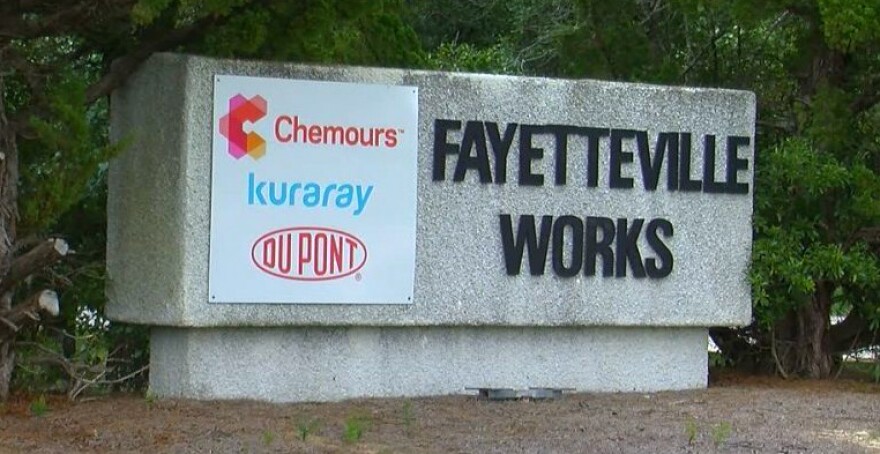The United Nations Human Rights Council has issued a formal statement condemning American chemical companies DuPont and Chemours for polluting the Cape Fear River with PFAS.
PFAS are a class of toxic chemicals also known as forever chemicals because they do not easily degrade in nature and can cause harm for decades. DuPont is the parent company of Chemours, which operates a manufacturing facility in Fayetteville.
"Even as DuPont and Chemours had information about the toxic impacts of PFAS on human health and drinking water, the companies continued to produce and discharge PFAS ... completely disregarding the rights and wellbeing of residents along the lower Cape Fear River in North Carolina," the statement reads.
The Council, comprised of independent experts and special rapporteurs, also condemns the U.S. Environmental Protection Agency and the North Carolina Department of Environmental Quality.
“Health and environmental regulators in the United States have fallen short in their duty to protect against business-related human rights abuses," the statement said. “Where legal action has been taken against the two companies, enforcement and remediation measures have been inadequate."
This formal statement comes after Clean Cape Fear, a grassroots organization based in Wilmington, submitted a communication to the U.N. Council last April. The petition for help asked the Council for "urgent intervention to actualize local residents’ human rights to safe drinking water ... and an environment free from toxic contamination."
"[I'm] tremendously grateful that they recognize business related human rights violations have occurred [and] that we're getting validation for a lot of things we feel we deserve," said Emily Donovan, co-founder of Clean Cape Fear.
Last September, the Council sent letters to DuPont, Chemours and the U.S. government seeking more information about the concerns raised by Clean Cape Fear.
The U.S. government has yet to reply to this request for comment. In its November response letters, DuPont declined to comment on questions from the Council, stating that DuPont has never owned the Fayetteville Works site and has never manufactured PFAS. Meanwhile, Chemours argued it has a strong commitment to reduce discharges of and exposure to PFAS chemicals.
In December, the EPA rescinded a permit that would have allowed Chemours to import waste materials from the Netherlands to North Carolina.
In its statement issued last week, the Council expressed alarm that the EPA allowed a permit in the first place. The Council also indicated grave concern over Chemours applying to DEQ for an air permit to expand its PFAS production.
Chemours first announced its intent to expand in 2022. The announcement was met with intense backlash from community members, and is still a point of contention.
"We don't think Chemours should be allowed to expand ... when they have not fully cleaned up the mess that they've made," Donovan said.
The Council's statement also suggests the greater U.N. should address the risks and harms posed by PFAS for communities around the world.
"I think the U.N. is just getting started. It'll be interesting to see what sort of conversations happen ... moving forward," Donovan said.



